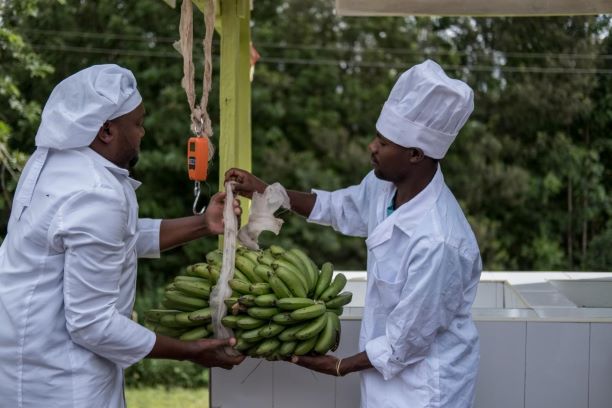In a continuation of its efforts to help small-scale farmers and micro-, small and medium size rural enterprises in developing countries create jobs and increase incomes, the International Fund for Agricultural Development (IFAD) announced today an investment of US$9 million (€8.4 million) into the Agri-Business Capital (ABC) Fund, a blended capital impact fund.
The investment was made possible thanks to a contribution from the Swiss Agency for Development and Cooperation. It is the first time that IFAD, a specialized United Nations agency and international financial institution, is investing directly into a private sector entity.
Under its private sector engagement strategy adopted in September 2019, IFAD can now directly fund private sector entities and invest in funds targeting rural small and medium size enterprises (SMEs) and small-scale producers’ cooperatives. This enables IFAD to fund a wider range of projects increasing poor rural peoples’ productive capacities, improving their benefits from market participation and promoting the use of climate-smart practices. IFAD’s strategy also aims to attract more private sector funding to the small-scale agriculture sector.
“The private sector’s involvement in the eradication of hunger and poverty was crucial before the COVID-19 crisis. Now it has become even more important as we work to reduce some of the immediate impacts of the crisis and plan for a longer-term recovery when it is over,” said Gilbert F. Houngbo, President of IFAD. “More than ever, we need to join forces with the private sector to help small-scale producers and rural SMEs preserve and create jobs for those who are more likely to be left behind.”
Small-scale producers and rural SMEs have always faced real difficulties in accessing the funding they need to grow their businesses. With COVID-19, their situation could become even more precarious without necessary support.
Prior to the COVID-19 crisis, the demand of $240 billion far exceeded the available supply of about $70 billion, leaving a funding gap of roughly $170 billion. About 70 per cent of the demand of approximately 270 million small producers in Latin America, sub-Saharan Africa, and South and South-East Asia was unmet.
“Small-scale farmers and rural SMEs are the backbone of the economy of their countries. They have a very high potential for growth and can create jobs – especially for the youth – and drive development in their communities and countries, but they need resources to invest,” added Houngbo.
The ABC Fund catalyses blended capital and invests in underserved segments of agribusiness value chains focusing on farmer organizations, financial intermediaries and agribusiness SMEs. It particularly targets commercially viable ventures that can help create employment, in particular for youth and women, and improve rural livelihoods. The fund also prioritizes climate-smart projects that promote sustainable production.
Originally sponsored by IFAD in 2019, the ABC Fund, now an independent private investment fund, is structured to blend public with private capital. It also provides technical assistance to investees through a dedicated facility. It received contributions from the European Commission, the Organisation of Africa, Caribbean and Pacific States, Luxembourg and the Alliance for a Green Revolution in Africa. It has a target size of €200 million. The ABC Fund is managed by Bamboo Capital Partners, a commercial private equity firm with a specialisation in impact investments.
In December 2019, the ABC Fund disbursed its first investment to a cooperative in Côte d’Ivoire collecting and marketing cocoa from and for its small producer members, benefiting over 2,700 cocoa farmers. Additional investments have been since approved and more are planned in the coming months benefiting cooperatives, SMEs, savings and credit cooperatives and micro-finance institutions.
IFAD’s investment in the ABC Fund is part of a wider plan to scale up IFAD’s engagement with the private sector and design innovative instruments to help increase investments in rural areas and help the private sector overcome the challenges of investing in small-scale agriculture, recognising that rural SMEs constitute an untapped business opportunity.








